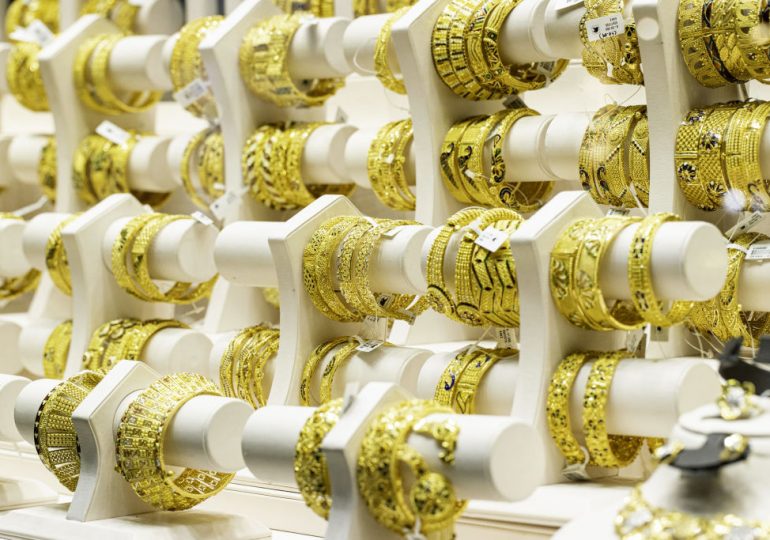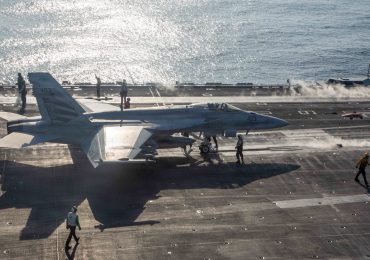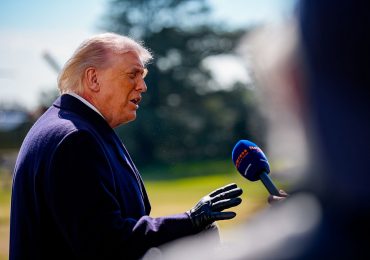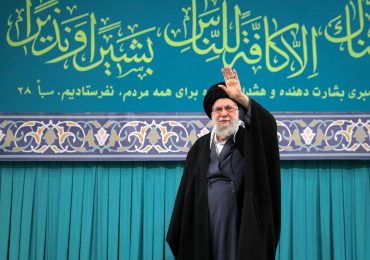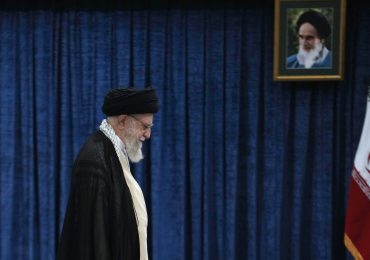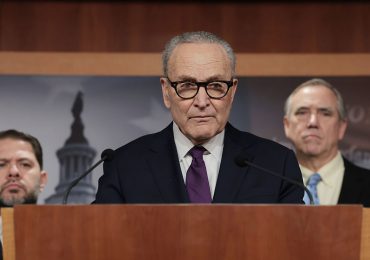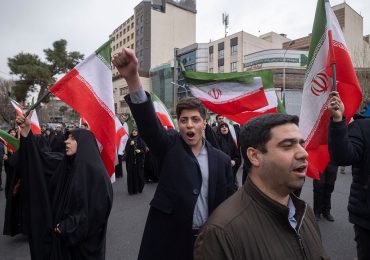Gifting gold at Christmas has been a thing since the very first. And there are few better places to buy it than Dubai’s Gold Souk, which is reputed to be the largest and cheapest gold market in the world.
Bargain-hunters have flocked here since before the United Arab Emirates (UAE) was even a country. Back in the early 1900s, merchants from India and Iran began hawking gems and precious metals close to the twisting waterway known as Dubai Creek. Today, more than 500 stores line the Gold Souk’s narrow alleys, crammed with pearls, platinum rings, silver earrings, and diamond-encrusted necklaces—as well its namesake precious metal, which can be bought as jewelry, coins, or biscuits.
[time-brightcove not-tgx=”true”]
“A main reason for its popularity is safety,” Fahad Khan, a Pakistani from Khyber Pakhtunkhwa who has worked in Dubai’s Gold Souk for two decades, tells TIME. “People can walk around with gold in your hand, and nobody will bother you. Most people come here, purchase 24 carat or 22 biscuits, go back to their own countries and they sell it.” Little wonder that gold is Dubai’s top foreign trade commodity, dwarfing oil four to one in 2020.
As Christmas approaches, Dubai’s Gold Souk goes into overdrive—both due to tourists stocking up with cheap gifts and because November to February is when gold prices historically dip, incentivizing buyers. These months also coincide with peak fighting season during the catastrophic civil war in Sudan. That might seem like a tenuous segue, but there’s plenty to connect the two.
While the scourge of blood diamonds has been well-documented (and immortalized by the 2006 Leonardo DiCaprio film), the role of blood gold is more insidious but no less ruinous. And it’s gold that has been one of the main drivers of the Sudan conflict, allowing both sides to fuel their war machines, especially after global gold prices reached record highs in 2024. “Gold has become the currency of this war,” says Kholood Khair, a Sudanese policy analyst and founding director of Confluence Advisory.
The UAE is the world’s third biggest importer of gold, which is in turn Sudan’s most important commodity, accounting for 70% of exports. This dynamic makes the UAE a primary actor in the war-torn Northeast African country of 50 million, where more than 20,000 people have been killed, 7 million internally displaced, and nearly 2 million forced across borders as refugees since fighting broke out in April 2023.
Sudan’s conflict is mainly being waged between the government’s Sudanese Armed Forces (SAF) and the paramilitary Rapid Support Forces (RSF)—ostensibly over the transition to free elections, though tensions have simmered for years. The RSF was formed out of the Janjaweed fighters of former President Omar al-Bashir, who ruled Sudan for three decades before his ouster in a popular uprising in 2019. That revolution brought to power Abdel Fattah al-Burhan, who later cemented his position in a 2021 coup and today is fighting RSF chief Mohamed Hamdan Dagalo, better known as Hemeti. Al-Burhan’s government accuses the UAE of backing the RSF, which has allegedly committed ethnic cleansing in Darfur.
The UAE denies any overt role in the conflict. In a statement, the UAE’s Permanent Mission to the U.N. denounced “spurious allegations” that it has been stoking the violence. “We reaffirm our support for efforts to de-escalate tensions, implement a ceasefire and advance negotiations leading to the restoration of a legitimate government that is representative of all Sudanese people.”
But few independent observers are convinced. Leaked documents allegedly showing Emirati passports recovered from battlefields suggest the UAE has been stealthily deploying troops in Sudan. U.N. sanctions monitors also described accusations that the UAE had provided military support to the RSF as “credible.” Even the Grammy-winning American rapper Macklemore canceled an October concert in Dubai over the UAE’s alleged role “in the ongoing genocide and humanitarian crisis” in Sudan.
“The UAE has taken a very clear position supporting the militia against the army, including logistical support, financial support, but also sending arms through trafficking routes,” says May Darwich, an associate professor specializing in Middle Eastern politics at the University of Birmingham.
At one level, Sudan is yet another proxy conflict between the Middle East’s squabbling theocracies, with Qatar and Iran major backers of the SAF. But the UAE also sees Sudan as a resource-rich, strategically located opportunity to expand its influence and control across Africa and the Middle East.
The fact the UAE imports 90% of food supplies has made food security one of its highest priorities, prompting huge investment in farmland overseas. It especially eyed Africa, for which Sudan was the largest agricultural producer, with two UAE firms already farming over 50,000 hectares in its north. However, the war has transformed the continent’s breadbasket into potentially the world’s worst famine for 40 years, with 50% of Sudan’s population requiring humanitarian aid.
At the same time, Sudan’s official gold exports generated $1.5 billion in revenue in the first 10 months of 2024, nearly all destined for the UAE. That doesn’t include a comparable amount smuggled out via Chad, Libya, Ethiopia, and Egypt by the RAF, which controls gold fields in Sudan’s east. Some “50–80% of [Sudan’s] gold is smuggled abroad… mainly through the UAE,” Ahmed Soliman, senior research fellow with the Africa Program at Chatham House, told a recent podcast.
But the global lust for gold is not just wreaking havoc in Sudan, with the UAE allegedly complicit in laundering illicit gold from the Central African Republic, Mali, the Democratic Republic of the Congo, and elsewhere. According to a May report by the NGO Swissaid, some 40% of all African gold exports are undeclared, of which 93% goes to the UAE. In addition, Russia’s Wagner militia is also heavily involved in the trade, helping funnel some $2.5 billion of African gold to Vladimir Putin’s war of choice in Ukraine, according to the Blood Gold Report. On Nov. 18, Russia even vetoed a U.N. Security Council draft resolution on protecting civilians in Sudan that would have urged warring parties to immediately cease hostilities and engage in dialogue.
Of course, the UAEs alleged role in laundering gold is nothing new. In 2016, Reuters reported that the UAE declared gold imports from 25 African countries—worth $7.4 billion—which had not declared any exports to the UAE. In total, the UAE declared $3.9 billion more in gold from across the 21 other source countries than was declared in their exports. The opacity of gold supply chains means American consumers might very well be funding Sudan’s war today. The number one exporter of gold to the U.S. is Switzerland, whose top gold supplier is the UAE. “The UAE doesn’t do due diligence as long as gold makes its markets money,” says Khair. “It takes it from anywhere.”
What is the international community doing? Very little, it seems, with the UAE’s comparatively pro-Israel stance amid the war in Gaza buying it diplomatic cover. “The U.S. and Israel have this conception of the UAE as among the very few countries in the moderate camp in the region, and they would not want to lose that partner at this point,” says Harwich.
It’s apathy that leaves consumers who may simply want to buy an ethically-sourced glistening gift for loved ones this holiday season with very little recourse. Adds Khair: “Sudan’s war chests are full of gold.”
Leave a comment
